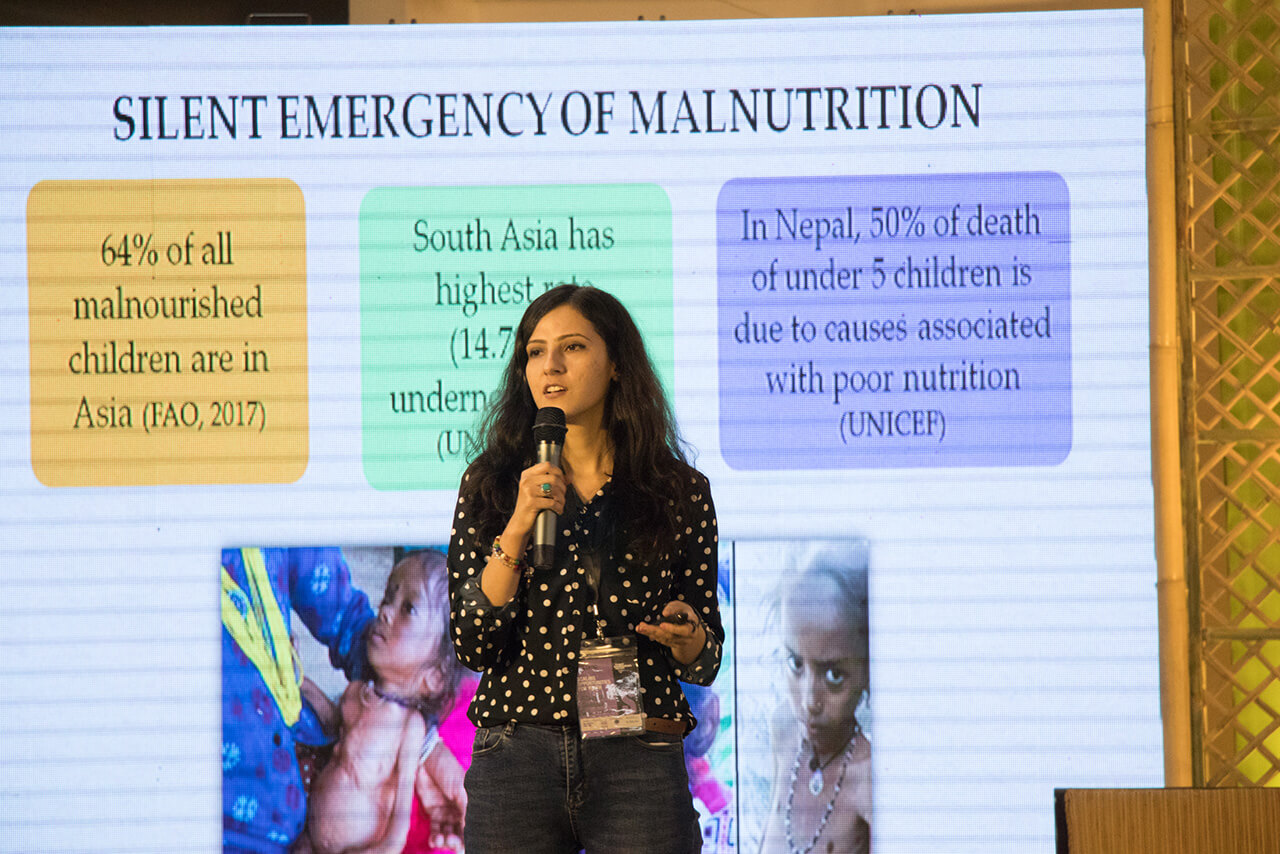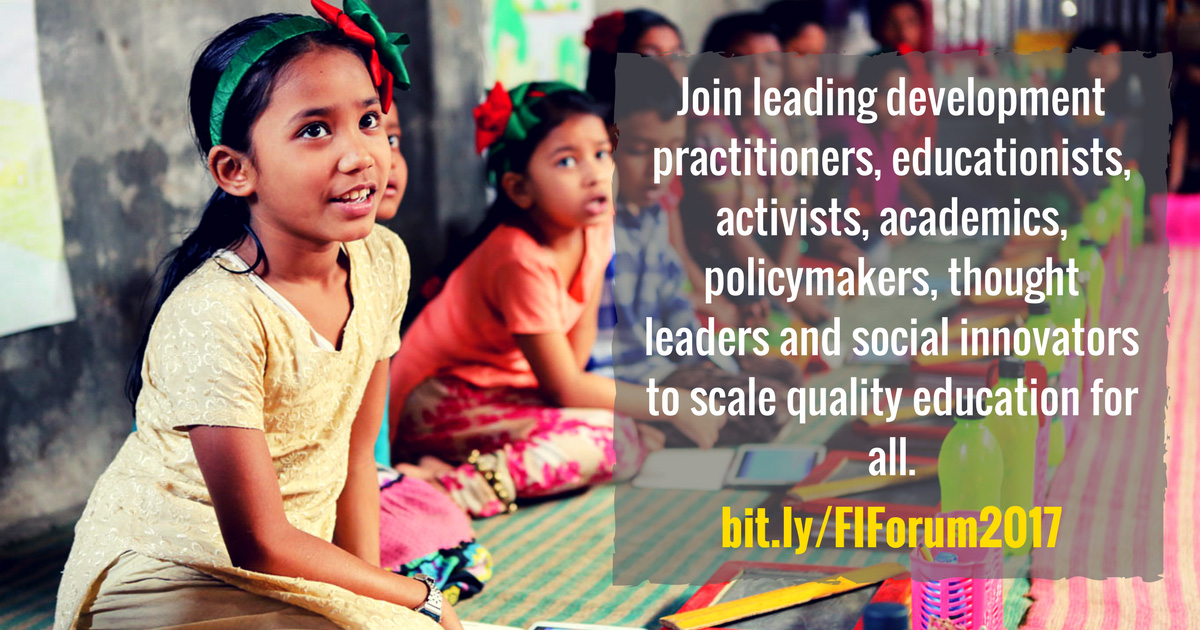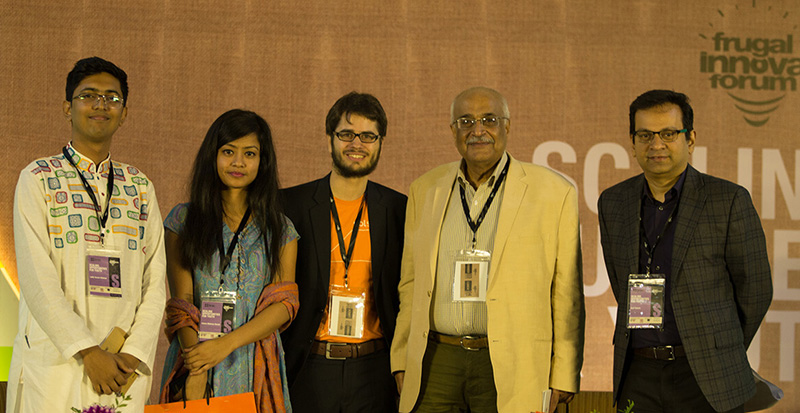On Saturday, 2 March 2019, the event kick-started with a field visit to the Rohingya camps in Cox’s Bazar, followed by a day-long conference on Sunday. Here are some of highlights from Day 1.
The annual conclave of social innovators from the Global South is not just based on ideas, but what is being done on the ground, and the possibilities beyond. It is a forum for sharing knowledge to create solutions and form exciting partnerships. With that remark, senior director of BRAC, Asif Saleh highlighted the challenges which surround the youth today. With 85% of the world’s youth population living in the Global South today, the challenge is huge – to equip them to create the world anew – but the potential for that world is equally large. Dr Muhammad Musa, executive director of BRAC, went on to say in his inaugural speech: “To face the challenges we have, we need to innovate. Innovate because challenges are diverse, innovate because solutions need to be grounded and innovate because we need to learn.”
Youth Can: Reframing the development dialogue
The first panel discussion brought up the challenges in the Global South in achieving the SDGs, while incorporating the youth – the largest demographic in the region. Moderated by Asif Saleh, the panelists were Centre for Policy Dialogue’s distinguished fellow Dr Debapriya Bhattacharya, UNDP’s Sohara Mehroze Shachi, and the founder of Inclusion X, Labib Tazwar Rahman. Together, they delved into the various spaces where youth engagement is lacking, and the scopes which can be opened up to them. The panel ended with Dr Bhattacharya’s remark: “If we come out of our comfort zones, the frugal can become robust.”
Beyond the ordinary
Highlighting the importance of impact, speakers shared their experiences throughout their innovation journey – what worked, and why. From BRAC’s Social Innovation Lab, Programme Manager Rakib Avi talked about the Amra Notun Network, which aims to provide young people throughout Bangladesh a platform of expression, growth, skill-building for being socially conscious and responsible. Over the last six months the network has reached over 200 participants, all of whom are working toward their projects of social development, and are mentors in their community.
SOLshare’s managing director, Sebastian Groh spoke about the future of power, where peer-to-peer solar grid systems will leave no room for power plants. In fact, the first such solar grid system was built right in Bangladesh’s Shariatpur. With SOLshare’s power system, users can sell their unused electricity to those who need it more, allowing for a need-based system to take place. It is convenient to purchase and use, as well as cost and energy efficient.
Next up was Mohammad Mohasin, the Secretary General of International Wheelchair Cricket Council, who shared his story with the audience. Diagnosed with polio at a young age, he grew up watching other kids play cricket from afar. One day he had decided to no longer let his dreams remain in the backseat, but probably had very little idea of how far that boldness would take him and his country. From being a small shop owner to now representing Bangladesh on the international arena and helping persons with disabilities break barriers, he has come a long way – and is not about to stop anytime soon.
The last panelist was Bonita Sharma. She founded SOHCAI – Youth for Nutrition after coming across a mother, Sangita, who lost her two-month old baby because she did not have access to proper knowledge on nutrition. Bonita’s work with SOCHAI is driven to equip women with knowledge about health and nutrition through their products and service. While they work on disseminating knowledge through their campaigns, they also have low-tech bracelets called “nutribeads” which help mothers keep track of their babies’ dietary needs. The bracelets engage local artisans to produce, and are sold in buy-one-give-one schemes – with every purchase made, one bracelet will be provided to a mother in a low-income family.

Tackling taboos to build a healthier generation
After the lunch break, the topic of discussion was health. The panel was moderated by the founder and CEO of Praava Health, Sylvana Quader Sinha. Panelists included Dean and professor of BRAC University’s James P Grant Dr Sabina Rashid, who presented her findings on the anxieties young people face today in addressing sexual and emotional confusions. Alongside her were professor Shohini Ghosh from AJK Mass Communication Research Centre, Dr Ashique Selim from the Sajida Foundation, and Anand Pawar from Samyak. The panelists came together and discussed the contours of young people’s predicaments – understanding relationships and sexuality in the changing world, drug use and abuse in adolescents, masculinity and violence, what kind of interventions are needed and which have been effective, and more.
Future of work in the Global South
The afternoon rolled in with talks of envisioning jobs in the future. Moderator Farzana Kashfi engaged the panelists to talk about how they see the marketplace for jobs evolve in the near future. Bickey Russel, general manager of the Google initiative Kormo, spoke about the app which acts as a career assistant – from creating a resume, to finding suitable work, and building a reputation in the marketplace. With services such as Uber, the way we look at workplace skills are taking on a shift. BRAC’s programme head Tasmiah Rahman emphasised on soft skills, for employees to be able to navigate pathways of different job sectors throughout the different stages of their lives. Kubendran Nair was also present in the session, sharing his experience working in South Africa with Harambee Youth Employment Accelerator, which works in creating networks for job-seekers to get connected with suitable employers.
This was just a glimpse of Day 1 – many more panels and speakers were present throughout the day, along with a pop-up classroom curated by Teach for Bangladesh, which featured short lectures by the experts at the conference. With first day of the Frugal Innovation Forum under wraps, it is time to gear up for Day 2.
Luba Khalili is a deputy manager at BRAC Communications.



